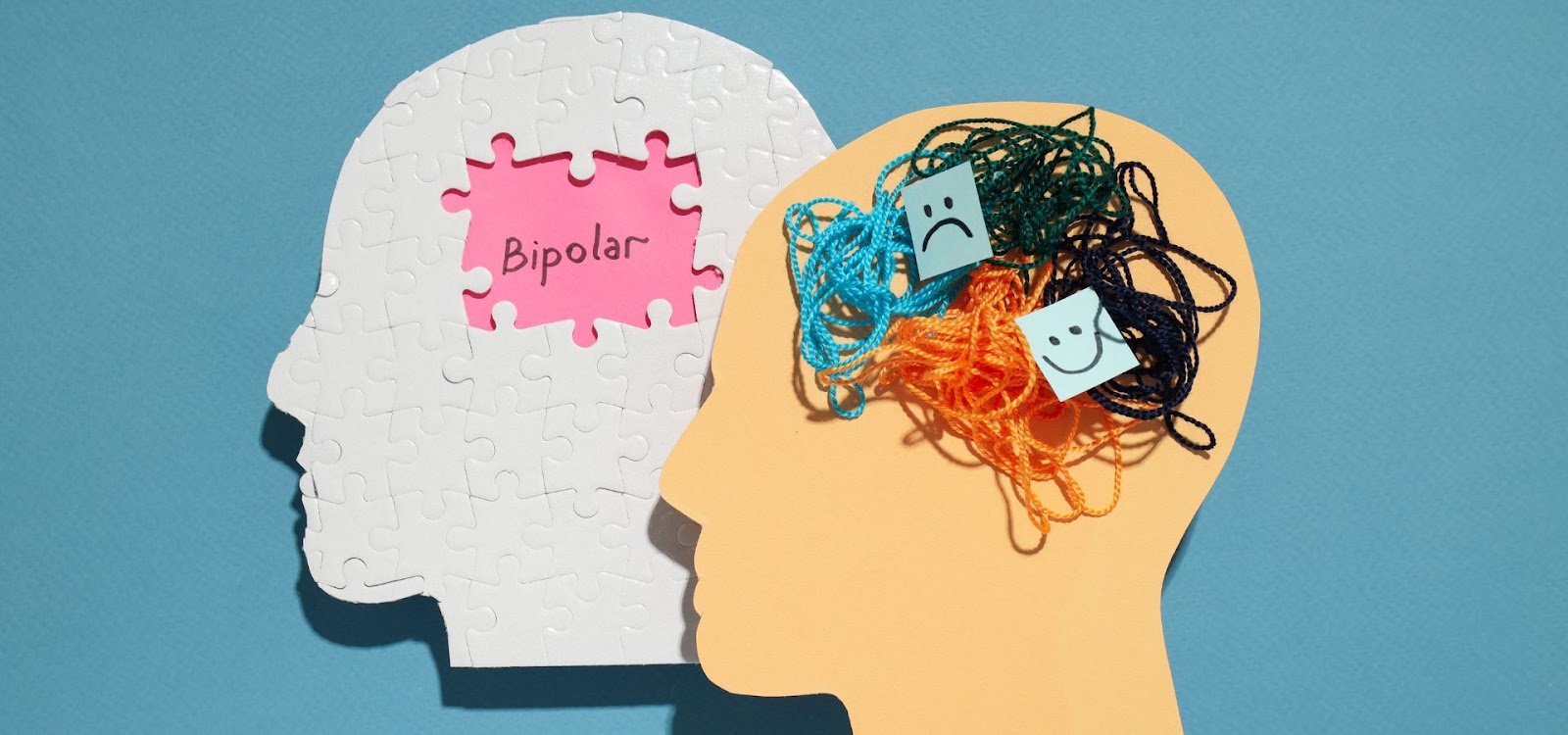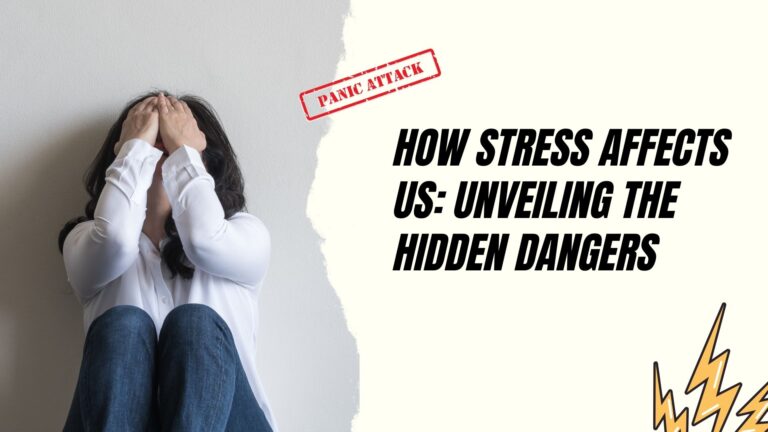Stress is often seen as a normal part of modern life. From the pressures of work to personal relationships, it seems like there’s always something weighing on us. But while stress might feel like just a temporary inconvenience, its long-term effects can be far more harmful than we realize. In this article, we’ll uncover the hidden dangers of stress and how it can silently impact both our mental and physical health.
The Nature of Stress: A Double-Edged Sword
Stress isn’t all bad. In small doses, it can be a powerful motivator, pushing us to meet deadlines, improve performance, or handle emergencies. This is known as acute stress, which helps us react quickly and efficiently in high-pressure situations. However, when stress becomes a constant part of our lives—known as chronic stress—it begins to take a serious toll on our health.

The Physical Impact of Stress: Silent Saboteur
Chronic stress doesn’t just stay in your head; it impacts your entire body. Here’s how:
1. Cardiovascular Strain
When you’re stressed, your body releases hormones like adrenaline and cortisol. These hormones cause your heart rate to increase and blood vessels to constrict, raising your blood pressure. Over time, chronic stress can lead to hypertension, increase the risk of heart disease, and potentially trigger a heart attack.
2. Suppressed Immune System
Cortisol, the primary stress hormone, dampens your body’s immune response. This means your ability to fight off infections and heal wounds is reduced. People who are constantly stressed may find themselves catching colds more frequently or recovering from illnesses more slowly.
3. Digestive Issues
Ever had a “gut feeling” when you were stressed? That’s no coincidence. Stress can upset the balance of the gut microbiome, leading to digestive disorders like irritable bowel syndrome (IBS) or even stomach ulcers. Chronic stress can also alter your eating habits, causing you to overeat or lose your appetite altogether.
4. Muscular Tension
When you’re stressed, your muscles tense up, preparing for action. This is useful in a short-term emergency, but constant muscle tension can lead to chronic pain, headaches, and even migraines. People often experience tightness in their neck, back, or shoulders due to stress.
5. Weight Fluctuations
Stress impacts your metabolism, and when cortisol levels remain elevated for extended periods, it can lead to weight gain, particularly around the abdomen. In some cases, stress causes people to lose weight due to suppressed appetite and digestive issues.

The Mental Toll: Stress and Your Brain
Chronic stress doesn’t just harm your body—it also has a profound impact on your mental well-being.
1. Anxiety and Depression
Prolonged stress can trigger anxiety and contribute to depression. The constant worry, fear, and overwhelming feelings associated with stress disrupt normal brain function, making it difficult to cope with daily tasks or find enjoyment in activities.
2. Cognitive Impairment
Stress affects your brain’s ability to process information. Memory lapses, difficulty focusing, and poor decision-making are all common symptoms of stress. Chronic stress can actually shrink the hippocampus, the part of your brain responsible for memory and learning.
3. Burnout
Burnout is a state of emotional, mental, and physical exhaustion caused by prolonged stress. It often occurs when people feel overwhelmed by their responsibilities and unable to keep up. Burnout can lead to a sense of detachment, lack of motivation, and a feeling of helplessness.
Behavioral Changes Due to Stress
When stress becomes overwhelming, it often leads to significant changes in behavior. Some common signs include:
1. Unhealthy Coping Mechanisms
To manage stress, people sometimes turn to unhealthy habits such as overeating, excessive drinking, or smoking. These behaviors may provide temporary relief but ultimately worsen stress and contribute to long-term health problems.
2. Sleep Disturbances
Stress is a leading cause of insomnia and other sleep disorders. Racing thoughts, anxiety, and muscle tension can make it difficult to fall asleep or stay asleep. Lack of sleep further exacerbates stress, creating a vicious cycle that can be hard to break.
3. Withdrawal from Social Connections
When stressed, people often withdraw from friends, family, and social activities. This isolation can worsen feelings of loneliness and make it harder to manage stress in the long run.

Long-Term Health Risks of Stress
The hidden dangers of stress aren’t just confined to temporary discomfort—they can lead to serious long-term health problems if left unchecked.
1. Heart Disease
Chronic stress is a major risk factor for heart disease, including coronary artery disease, heart attacks, and strokes. The constant pressure on the cardiovascular system weakens the heart over time.
2. Diabetes
Stress affects blood sugar levels, which can increase the risk of developing type 2 diabetes. People who already have diabetes may find it harder to control their blood sugar when stressed.
3. Mental Health Disorders
Untreated stress can contribute to the development of mental health disorders such as generalized anxiety disorder (GAD), major depressive disorder (MDD), and post-traumatic stress disorder (PTSD).
4. Gastrointestinal Disorders
Chronic stress is linked to serious gastrointestinal disorders like gastroesophageal reflux disease (GERD) and peptic ulcers. Stress can exacerbate existing conditions and make it harder for the digestive system to function properly.

How to Manage Stress Effectively
While the dangers of stress are real, there are effective ways to manage it and reduce its impact on your health. Here are some strategies:
1. Mindfulness and Meditation
Practicing mindfulness helps you stay present and reduces anxiety about the future. Meditation can calm your nervous system, lower cortisol levels, and create mental clarity. Even a few minutes a day can make a difference.
2. Physical Activity
Exercise is one of the best ways to manage stress. It releases endorphins, which improve your mood, and helps relax tense muscles. Whether it’s a quick walk, a yoga session, or strength training, physical activity is key.
3. Social Support
Talking to friends, family, or a therapist can provide relief from stress. Opening up about your concerns helps reduce feelings of isolation, offering perspective and emotional support.
4. Relaxation Techniques
Deep breathing exercises, progressive muscle relaxation, and stretching can help calm your body and mind. Incorporating these techniques into your daily routine can significantly reduce stress levels.
5. Healthy Lifestyle Choices
A balanced diet, regular sleep, and limiting alcohol or caffeine intake can help manage stress. Taking care of your body gives you the resilience needed to handle stress more effectively.
Conclusion
Stress may seem like a part of everyday life, but it’s crucial to recognize its hidden dangers. From physical ailments like heart disease and digestive disorders to mental health challenges such as anxiety and depression, the effects of chronic stress can be far-reaching and long-lasting. By understanding how stress impacts your body and mind, and by actively managing it through healthy lifestyle choices and relaxation techniques, you can protect your health and lead a more balanced, peaceful life.
FAQs
How does stress affect the heart?
Chronic stress increases heart rate and blood pressure, which puts strain on the cardiovascular system. Over time, this can lead to hypertension, heart disease, and an increased risk of heart attacks. Stress hormones like cortisol and adrenaline play a key role in this.
Can stress cause digestive problems?
Yes, stress can disrupt your digestive system, leading to issues like irritable bowel syndrome (IBS), stomach cramps, nausea, and even ulcers. When stressed, the body's focus shifts away from digestion, which can cause a range of gastrointestinal problems.
What are some effective ways to manage stress?
Stress management techniques include regular exercise, practicing mindfulness and meditation, maintaining a healthy diet, getting enough sleep, and building a strong support system of friends or family. Deep breathing exercises and relaxation techniques can also help reduce stress quickly.
Can chronic stress lead to mental health disorders?
Yes, chronic stress can contribute to mental health disorders such as anxiety, depression, and burnout. If left untreated, stress can worsen these conditions, making it important to recognize the signs and seek help when necessary.


